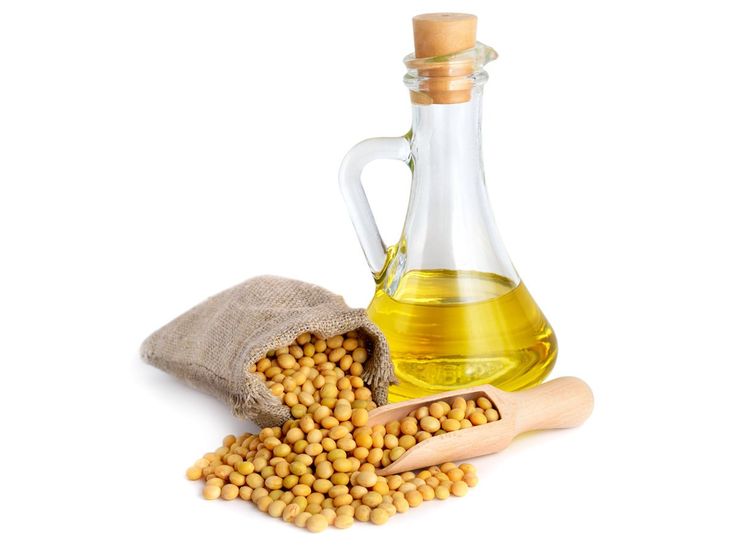Categories
The latest content
-

Customs Clearance & Import Regulations for Bulk Iranian Pinto Beans in EU, Middle East & Africa
..
-

Quality Control & Laboratory Testing Standards for Iranian Pinto Beans
..
-

Logistics & Shipping Solutions for Bulk Iranian Pinto Bean Exports
..
-

Minimum Order Quantity (MOQ) & Bulk Pricing for Iranian Pinto Bean Buyers
..

Tags
Quality Control & Laboratory Testing Standards in Iranian Soybean Oil Export

The global edible oil market is becoming increasingly competitive, and buyers demand reliable, safe, and certified soybean oil from their suppliers. For Iranian soybean oil exporters, ensuring consistent quality, international certifications, and strict laboratory testing is the key to winning global trust.
At Tamila Agrifood, quality control is not just a step in the process—it’s the foundation of our business. In this article, we’ll explore the standards, certifications, and testing protocols that make Iranian soybean oil a trusted choice in Europe, the Middle East, Africa, and Asia.
1. Why Quality Control Matters in Soybean Oil Export?
Soybean oil is a versatile product used in cooking, food processing, pharmaceuticals, and industrial applications. Any compromise in quality can lead to:
• Regulatory rejections at customs checkpoints.
• Shortened shelf life and rancidity.
• Health risks due to impurities or contaminants.
• Loss of market reputation for both supplier and importer.
This is why Iranian soybean oil exporters follow strict quality control systems backed by international certifications.
2. International Standards for Iranian Soybean Oil
To access major markets such as the EU, GCC, and Africa, Iranian soybean oil must comply with global food safety and quality benchmarks. The most critical certifications include:
• ISO 22000 & ISO 9001: Ensure consistent quality management and food safety.
• HACCP (Hazard Analysis and Critical Control Point): Identifies and controls food safety risks.
• Halal Certification: Essential for exports to Muslim-majority countries in the Middle East and Asia.
• Organic Certification: Required for non-GMO and pesticide-free soybean oil.
• Codex Alimentarius Standards: Align with international food safety guidelines.
3. Laboratory Testing Protocols for Soybean Oil
Before export, each batch of Iranian soybean oil undergoes comprehensive laboratory analysis to ensure compliance with buyer requirements. Key tests include:
• Free Fatty Acid (FFA) Content: Indicates oil freshness and shelf life.
• Peroxide Value (PV): Measures oxidation and rancidity levels.
• Moisture & Volatile Matter: Ensures oil stability during shipping.
• Color Measurement (Lovibond or Spectrophotometer): Guarantees consistent appearance.
• Phosphorus Content: Ensures complete degumming in refined oil.
• Contaminant Testing: Heavy metals, pesticides, and aflatoxin checks.
• Microbiological Testing: Confirms absence of harmful bacteria or molds.
These tests are conducted by accredited laboratories recognized by international buyers.
4. Traceability & Batch Control Systems
Modern soybean oil export requires traceability from farm to final shipment. Exporters like Tamila Agrifood use:
• Batch numbering systems to track oil from processing to export.
• Digital documentation for certificates of analysis (COA).
• Supply chain transparency to meet EU and FDA regulations.
This system ensures that every shipment is accountable, safe, and verifiable.
5. Quality Control During Logistics & Packaging
Even with high-quality oil, poor logistics can compromise shipments. To prevent this, exporters apply:
• Food-grade bulk packaging (flexitanks, ISO tanks, drums).
• Cold-chain shipping when required to preserve freshness.
• Regular sampling during loading/unloading to avoid contamination.
• Tamper-proof seals to ensure shipment integrity.
6. Benefits of Choosing Certified Iranian Soybean Oil
Importers who partner with certified Iranian suppliers enjoy:
• Smooth customs clearance due to internationally recognized certifications.
• Lower risk of shipment rejection in regulated markets.
• Stronger brand reputation by offering safe and high-quality oil.
• Longer shelf life and better stability, reducing waste.
7. Tamila Agrifood Commitment to Quality
At Tamila Agrifood, we combine modern processing facilities, international certifications, and advanced laboratory testing to deliver soybean oil that exceeds buyer expectations. Our quality assurance team monitors every stage—from soybean selection to refining, packaging, and shipping.
We provide:
• Certificates of Analysis (COA) with every shipment.
• Compliance with EU, FDA, and Codex standards.
• Custom testing upon buyer request.
Conclusion
In today’s global marketplace, quality assurance is not optional—it’s essential. With strict laboratory testing, certification systems, and traceability protocols, Iranian soybean oil has become a reliable choice for international buyers.
Whether you’re importing for food production, retail packaging, or industrial applications, partnering with a certified supplier like Tamila Agrifood guarantees safety, consistency, and long-term success in your market.
Email: tamilaagrifood@gmail.com
WhatsApp for Quotations: +989141858935



